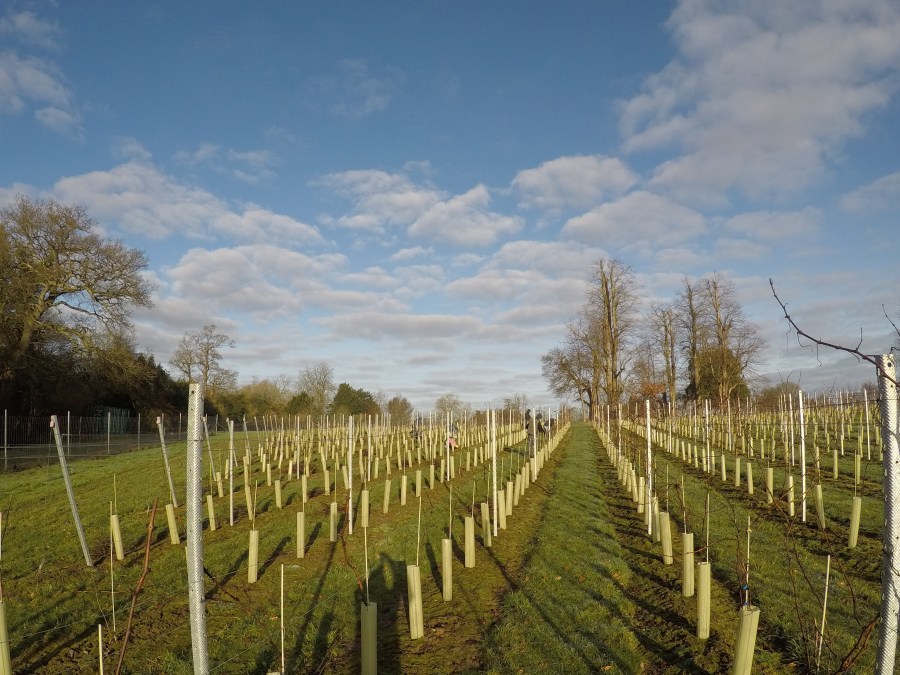Planting is probably the most critical endeavour in the life of a vineyard, after all you only get to do it once, which is why Agrii has been working alongside East Malling Research on a three-year long trial to enhance vineyard establishment. These trials have looked at how a variety of products can influence not only plant vigour but also wine quality.
General planting practice is well established with most vines now being planted using GPS or laser guided machines and large gangs of labour. There is however still space for hand planting whether that be gapping-up spaces in larger vineyards or planting smaller more bespoke vineyards. When gapping up it is important to remember that soil is a living ecosystem and that both harmful and good soil-biota will colonise a plant’s root system and proliferate.
Good vineyard practice should enhance the amount of ‘positive’ micro-organisms in the soils. This could include applications of Trichoderma spp. Gleocladium spp. or mychorhizal fungi, these three types of fungi can help reduce the impact of root diseases, especially when replanting. Gleocladium (Prestop) for example will colonise the root surface of the vine and is therefore able to reduce the potential surface area for pathogen infection. Beneficial soil biota can also have a positive influence on phosphorous uptake. Phosphorous uptake is limited in soil, this is because phosphate ions easily bind with metal ions such as aluminium, iron, manganese and calcium in the soil and are highly insoluble and therefore difficult for plants to take up. Some species of bacteria including strains of Bacillus amyloliquefaciens (such as those found in Cilus Plus) are able to increase the uptake of phosphorous by releasing phytase enzymes into rhizosphere of each vine.
Some vineyards may also benefit from soil sterilisation to kill pathogenic organisms in the soil, this can be achieved using a cover crop. Spring sown Vitasso Brown mustard is an excellent and natural soil sterilant, and when integrated into the soil can help suppress nematode and plant pathogen populations therefore it has the potential to act as a brilliant pre-plant catch crop. This strain of brown mustard is particularly high in glucosinolates, which when broken up releases the natural chemical isothyocyanate, which sterilises soil killing fungal pathogens, nematodes and insect pests.
For more details on Agrii’s planting trials and viticultural research programme speak to your agronomist.




